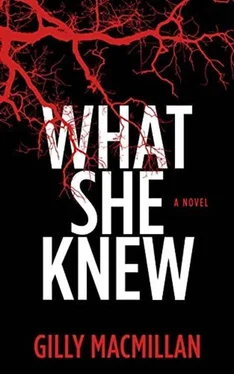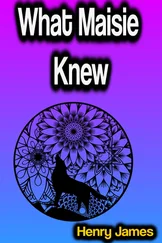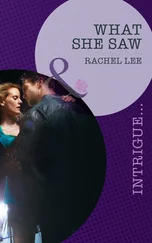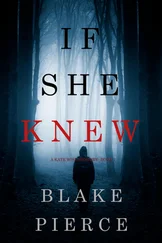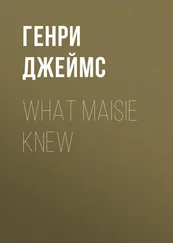FM: And when you moved to Bristol, to the Avon and Somerset force, did that change?
JC: It changed completely. Only one or two of the older guys in Bristol knew my dad personally.
FM: So it was a chance for a fresh start?
JC: It was a promotion is what it was.
FM: Has policing been the right career choice for you do you think?
JC: It’s what I always wanted to do. There was never another way for me. Like I said it’s in the blood. It has to be in the blood.
FM: Why ‘has to be’?
JC: Because you see it all. You see the dirtiest, blackest side of life. You see what people inflict on each other, and it can be brutal.
His gaze is steady now, focused entirely on me. I feel that he’s challenging me to contradict what he’s said, or diminish it. I remember that I’m not the only person in the room trained to read the behaviour of others. I decide to move on.
FM: Your record states that you took an English degree before joining the force.
JC: It’s expected to join the force with a degree nowadays. Not like it used to be when you went in straight from school.
FM: Did you enjoy your degree?
JC: I did.
FM: What did you study? Was there anything you especially enjoyed?
JC: Yeats. I enjoyed Yeats.
FM: I know a Yeats poem: ‘Turning and turning in the widening gyre/The falcon cannot hear the falconer…’ Do you know it? I think it’s by Yeats anyway. I forget the title.
JC can’t help himself, he carries on the poem.
JC: ‘ … Things fall apart; the centre cannot hold;/Mere anarchy is loosed upon the world…’
FM: ‘ … The blood-dimmed tide is loosed, and everywhere…’
JC: ‘ … The ceremony of innocence is drowned’.
FM: There’s more.
JC: I can’t remember it exactly.
FM: He’s a wonderful poet.
JC: He’s a truthful poet.
FM: Do you still read poetry?
JC: No. I don’t have time for that sort of thing now.
FM: You work long hours?
JC: You have to if you want to get on.
FM: And do you? Want to get on?
JC: Of course.
FM: Can I ask you once again: is there anything specific that triggers your panic attacks?
JC covers his face with his hands, rubs his eyes, and massages his temples. I begin to think he isn’t going to reply, that I’ve pushed him too far too fast, but eventually he seems to come to some kind of decision and looks me directly in the eye.
JC: I can’t sleep. It makes me confused sometimes. It makes me doubt my judgement.
FM: You suffer from insomnia?
JC: Yes.
FM: How long has this been going on?
He studies me before he answers.
JC: Since the case.
FM: Do you struggle to get to sleep, or do you wake up in the middle of the night?
JC: I can’t fall asleep.
FM: How many hours do you think you sleep a night?
JC: I don’t know. Sometimes as little as three or four.
FM: That’s a very small amount, which could certainly have a profound effect on your state of mind during the day.
JC: It’s fine.
He’s being stoic suddenly, as if he regrets confiding in me.
FM: I don’t think three or four hours’ sleep is fine.
JC: Maybe I’m wrong. It’s probably more.
FM: You seemed quite certain.
JC: It’s nothing I can’t cope with.
I don’t believe him.
FM: Have you sought any medical help?
JC: I’m not taking pills.
FM: What goes through your mind when you’re trying to sleep?
Again, he studies me before responding.
JC: I can’t remember.
His answers have become obviously and frustratingly evasive, and I want to delve more into this, but now is not the time, because if this process is to succeed I must first build his trust and that, I suspect, is not going to be an easy task.
MONDAY, 22 OCTOBER 2012
Efforts undertaken by law-enforcement agencies during the initial stages of a missing-child report may often make the difference between a case with a swift conclusion and one evolving into months or even years of stressful, unresolved investigation. While the investigative aspect of a missing-child case is similar, in many ways, to other major cases, few of these other situations have the added emotional stress created by the unexplained absence of a child. When not anticipated and prepared for, this stress may negatively impact the outcome of a missing-child case.
Findlay, Preston and Lowery, Jr, Robert G (eds.), ‘Missing and Abducted Children: A Law-Enforcement Guide to Case Investigation and Program Management’, Fourth Edition, National Center for Missing and Exploited Children, OJJDP Report, 2011
John couldn’t stand the waiting. He wanted to do something, so he spent most of the night driving around, circling the woods, following the routes back into Bristol, just in case.
Each time he returned, he sat in my car and asked me to go over what had happened.
‘I’ve told you,’ I said, when he asked for the third time.
‘Tell me again.’
‘How will it help?’
‘It might.’
‘I’m so scared he’s hurt.’
John winced at my words but I needed to say more.
‘He’ll be so frightened.’
‘I know.’ His reply was tight, tense.
‘He’ll be wondering why we haven’t found him yet.’
‘Stop! Just tell me again. From the beginning.’
I did. I told him everything I could remember, over and over again, but it was simple really. Ben was there, and then he ran ahead, and then he was gone. No sign, except a rope swing, gently swaying.
‘Do you think he’d been on it?’ John asked. ‘How was it swaying?’
‘Backwards and forwards. Gently.’
‘Could the wind have blown it?’
‘It might have.’
‘Have you told the police?’
‘Yes.’
‘And you heard nothing?’
‘No. Just the sounds of the woods.’
‘And you called out to him?’
‘Of course I did.’
And so on. In this way, the hours passed slowly, desperately. We punctuated the time by speaking periodically to the police, getting updates that told us nothing. I rang Nicky more than once, passing on the lack of news, hearing the mounting desperation in my voice echoed in her responses.
Inspector Miller arrived before midnight in full waterproof gear, to oversee the search. The men with dogs changed shift twice. Sodden and tired animals handed over to eager, bright-eyed creatures, straining at their leashes. I gave them Ben’s jumper to sniff, so they knew his scent. The darkness was our greatest enemy, holding back the possibility of a full-scale search.
At 5 am, Inspector Miller called John and me together to tell us what was happening. They were readying themselves for dawn, he said, which would be at 07.37. He ran through a list of the actions that were planned, using police speak that I only partially understood. There were to be more dogs, horses, a sergeant and six; Mountain Rescue were coming, and they’d scrambled the Eye in the Sky.
For the next couple of hours I watched numbly from my car as the scene in the car park transformed. I felt useless, a voyeur.
The ‘sergeant and six’ turned out to be a grilled van, from which seven men appeared, ready to search on foot. Another van brought a generator, lights, a shelter and maps and four Mountain Rescue men. Inspector Miller and WPC Banks worked to organise them. They’d both begun to function with the contained, intense kind of energy of somebody who has a bad secret that they’re not allowed to tell.
Dawn crept in in fits and starts, the pall of total darkness reluctant to retreat. Daylight revealed that the parking area had been churned up by the constant comings and goings during the night. The only blessings were that the rain had ebbed to a persistent drizzle and the wind had died down somewhat, though spiteful, icy little gusts still blew through intermittently.
Читать дальше
